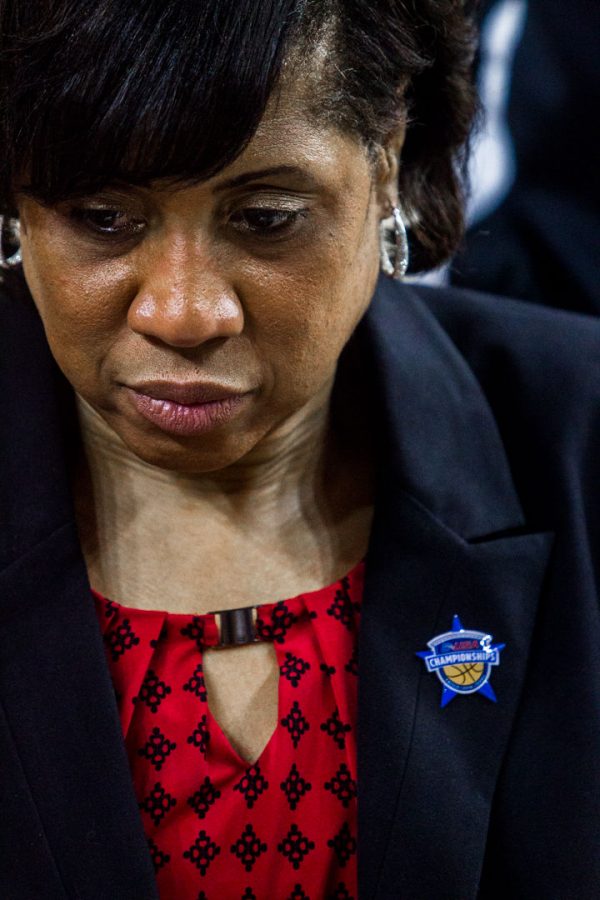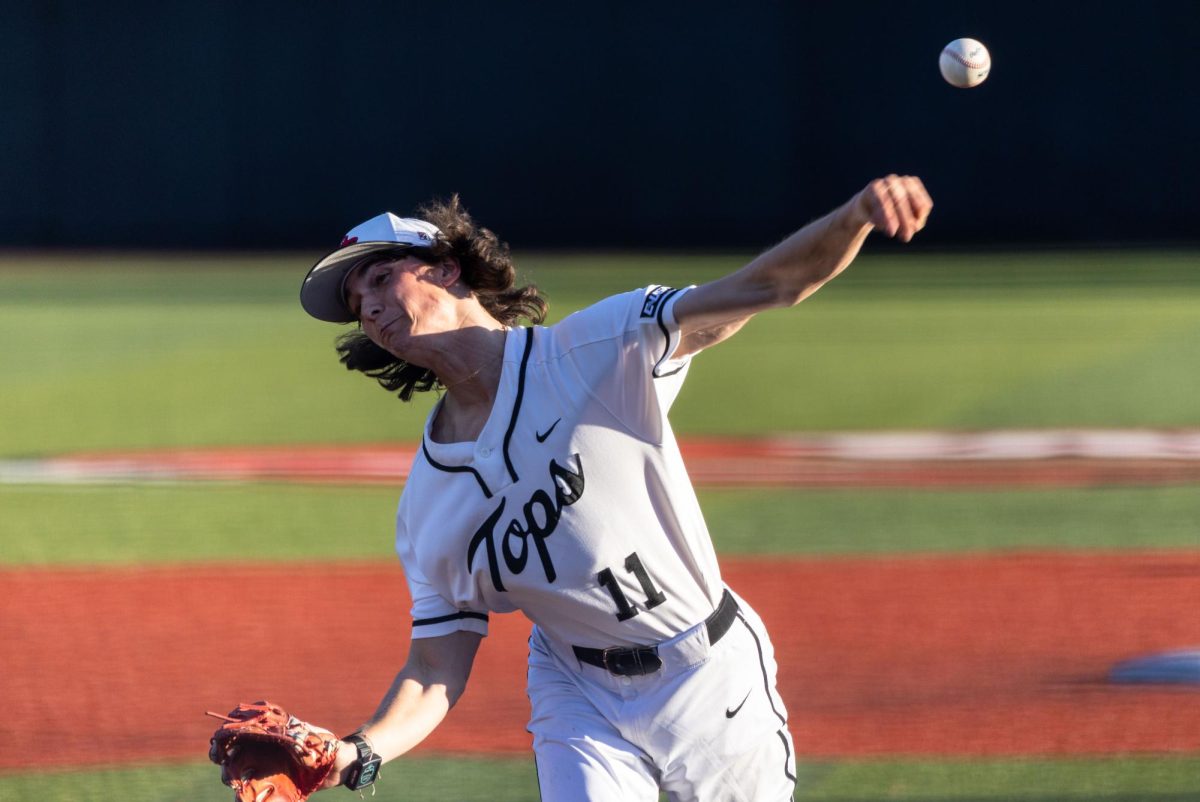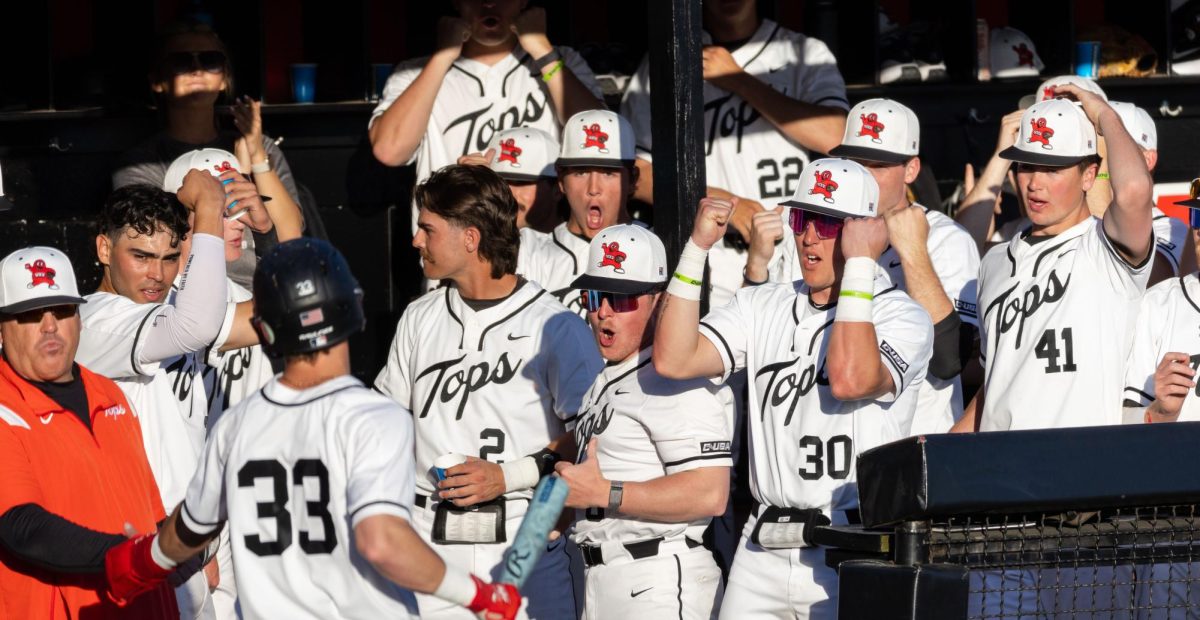Down to the Wire: Financially and competitively, Clark-Heard outgrew WKU
April 2, 2018
WKU women’s basketball has lost one of the best coaches the program has ever seen.
Michelle Clark-Heard is headed north to take on the head coaching role at the University of Cincinnati after seemingly hitting the ceiling at WKU.
In six seasons at the helm of WKU, Clark-Heard’s two Conference USA regular season championships, three C-USA Tournament championships and four NCAA Tournament appearances were rewarded with just one raise. With budget cuts coming and one of Clark-Heard’s staff positions having been cut, it was pretty clear to see that there wasn’t much more room for growth at WKU.
“This is one of the hardest decisions that I have ever made in my career,” Clark-Heard said in a press release following her departure from WKU. “What we have built here at WKU is special. As a team, I always talk to our players about leaving a place better than you found it. I want to thank my players, my coaching staff and my support staff for helping to make that a reality over these last six years.”
Clark-Heard had a $150,000 salary in her original contract agreement in 2012. She received a $50,000 salary raise in 2013 after leading the Lady Toppers to a 22-11 record in her first season, but did not receive a raise after that despite doing her best work in the following five seasons.
In the middle of this past basketball season, one in which the Lady Toppers won the C-USA Tournament and made the NCAA Tournament for the second straight year and the third time in four years, men’s head coach Rick Stansbury received a $150,000 raise. That upped his salary to $650,000 following a 15-17 season and in the midst of a 27-11 season.
That’s not to say that Stansbury’s raise was completely undeserved. The Hilltoppers head coach accomplished a great turnaround in the span of a year. In the big-money world of men’s college basketball, the university felt that an immediate raise was necessary to keep Stansbury at WKU. But it was clear at that point that Clark-Heard had reached the pinnacle at WKU. Her director of operations had his position eliminated due to a $1.3 million budget cut, and with schools like UC and Ole Miss calling, it was unlikely that WKU was going to be able to prioritize keeping Clark-Heard around.
And it’s not just the financial side of it that had to have had Clark-Heard looking elsewhere. Women’s college basketball has an extreme gap in talent between the top tier of teams and the rest of the bunch. Everyone’s up against UConn, Notre Dame and Mississippi State, playing a game of catch-up that they’re doomed to lose. In that landscape, it’s a nearly impossible task for a mid-major school like WKU to pull off a first-round upset in the NCAA Tournament. That’s evidenced by the fact that Clark-Heard’s teams dominated C-USA, but never won a single NCAA Tournament game.
Now that she’s at the helm at UC, competing with UConn in the American Athletic Conference doesn’t serve to make Clark-Heard’s conference battles any easier. But she now won’t be forced to stake her reputation on conference championships and first-round exits. Money, at-large bids and NCAA Tournament wins will be much easier to come by for the WKU alum at her new job.
And as for what she leaves behind, the Lady Toppers have a lot of change to come. New head coach Greg Collins will bring some continuity, being an inside hire. He joined Clark-Heard’s staff when she arrived at WKU and spent the last four seasons as the team’s associate head coach. He’ll take control of a roster that is returning 11 players, but it will have two huge holes in it. The loss of C-USA Player of the Year Tashia Brown and C-USA Defensive Player of the Year Ivy Brown will leave the Lady Toppers with huge shoes to fill. The program will also have to deal with the loss of signee Akira Levy, who decommitted when Clark-Heard took the UC job.
Sports editor Jeremy Chisenhall can be reached at 270-745-6291 and jeremy.chisenhall921@topper.wku.edu. Follow him on Twitter at @JSChisenhall.
















